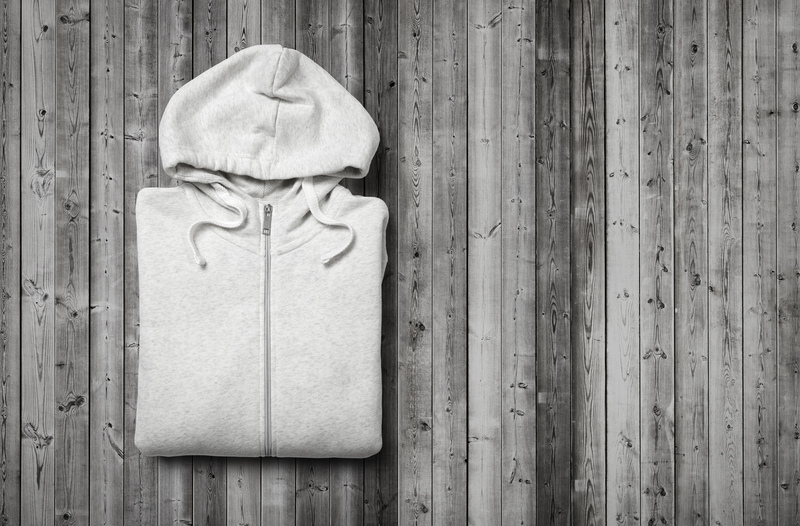Garden Waste Control Ideas
Posted on 21/12/2024
Maintaining a garden can be a joyous and rewarding endeavor, but it also generates a substantial amount of waste. From grass clippings and fallen leaves to pruned branches and dead plants, garden waste can pile up quickly. Knowing how to manage this waste not only helps you keep your garden tidy but also benefits the environment. This article will outline some effective garden waste control ideas that you can implement to manage your garden waste more efficiently.
Composting
One of the most popular and environmentally-friendly ways to manage garden waste is through composting. Composting allows you to recycle natural materials into valuable fertilizer for your garden. Here's how to get started:
- Choose a Suitable Compost Bin: You can either purchase a compost bin or build one yourself. Place your bin in a well-drained location that gets a mix of sun and shade.
- Gather Suitable Materials: Compostable materials include fruit and vegetable scraps, grass clippings, leaves, coffee grounds, and egg shells. Avoid adding meat, dairy, or diseased plants, as they can hinder the composting process.
- Layer and Turn: Create layers of green (nitrogen-rich) and brown (carbon-rich) materials. Mixing in soil can help introduce beneficial microbes. Turn the pile regularly to aerate it and speed up decomposition.
Composting takes time, but the end result is nutrient-rich humus that will enhance the fertility of your garden soil.

Mulching
Mulching involves spreading organic materials over the soil surface to retain moisture, suppress weeds, and improve soil health. Organic mulch can be made from a variety of garden wastes, such as grass clippings, leaves, and chipped branches. Here's how to apply mulch effectively:
- Sourcing the Material: Collect materials like shredded leaves, straw, grass clippings, or chipped wood.
- Preparation: Ensure the mulch is free of any weed seeds or diseases that could harm your plants.
- Application: Spread a layer of mulch around trees, plants, and garden beds. The thickness should ideally be around 2-4 inches.
Mulching not only helps in waste management but also provides several benefits to your garden ecosystem.
Shredding and Chipping
If you have a considerable amount of branches, twigs, and woody materials, consider investing in a shredder or chipper. Shredding and chipping garden waste can reduce its volume significantly and produce useful mulch:
- Choose the Right Equipment: Depending on the size of your garden and the type of waste, choose between electric, gas, or heavy-duty chippers.
- Feed Quality Material: Always feed clean, dry branches into the chipper to prevent clogging and blade damage.
- Storage and Use: Store chipped material in a dry place and use it as mulch for pathways, garden beds, or as a foundational layer in composting.
By shredding large pieces of garden waste into smaller, manageable pieces, you not only control garden waste but also create valuable materials for garden use.
Green Waste Collection Services
Many local councils offer green waste collection services for residents. This is an ideal option if you don't have the time or space for composting or shredding. Usually, these services operate on a regular schedule and accept a wide range of garden waste:
- Schedule and Regulations: Check the schedule and guidelines provided by your local council. There might be restrictions on the types of waste accepted.
- Proper Segregation: Separate garden waste from household waste and clear any contaminants to facilitate recycling.
- Special Request Services: Some councils offer special pickup services for large volumes of waste or bulky items like tree stumps and large branches.
Utilizing these services reduces the hassle of managing garden waste and ensures that it is disposed of in an environmentally responsible manner.
DIY Creative Projects
If you are inclined towards creativity and DIY projects, garden waste can be used to create functional and decorative items for your garden. Here are some ideas:
- Garden Edging: Use old branches or pieces of wood to create edging for your garden beds.
- Compost Tea: Create a nutrient-rich liquid fertilizer by soaking compost in water for a few days.
- Building Structures: Use larger branches to build simple structures like trellises, bean poles, or even small garden furniture.
These creative uses not only help you manage garden waste but also add a personal touch to your garden aesthetic.

Burning (As a Last Resort)
Burning garden waste should generally be your last resort due to the environmental impact and potential fire hazards. However, if you have no other option and local regulations permit it, here are some safety tips:
- Check Local Laws: Ensure burning garden waste is legal in your area. Some regions have restrictions, especially during dry seasons.
- Use a Proper Burn Container: Use a burn barrel or a similar container to control the fire.
- Mind the Weather: Avoid burning on windy days to prevent the fire from spreading.
- Supervision: Never leave the fire unattended and keep a water source nearby for emergencies.
Burning should only be considered when other methods are not feasible. Always prioritize safety and environmental considerations.
Conclusion
Effective garden waste control is essential for maintaining a tidy and healthy garden. Composting, mulching, shredding, utilizing green waste collection services, engaging in creative DIY projects, or even burning (as a last resort) are all viable options depending on your specific needs and circumstances. By adopting these practices, you can not only manage garden waste efficiently but also contribute positively to environmental sustainability.
By implementing these garden waste control ideas, you are taking significant steps towards a more organized, eco-friendly, and beautiful garden. Happy gardening!
Latest Posts
Essential Tips for Managing Organic Waste






